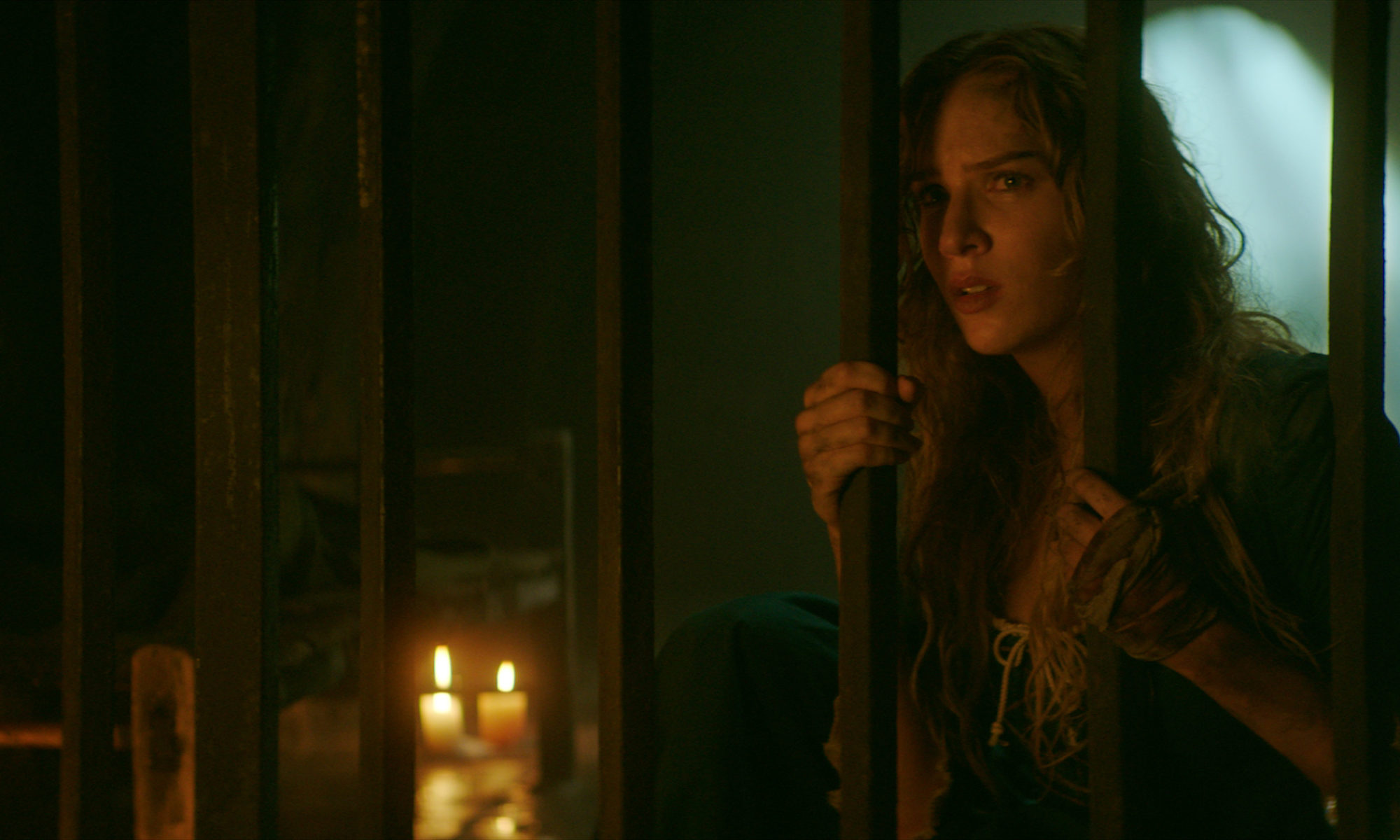Imagine a downbeat cross between historical romance, rape-revenge thriller and what’s become known as folk horror and you’ll have a pretty good idea of the overall mood of The Reckoning. Writer-director Neil Marshall, who made a splash as a genre director back in the early 2000s with Dog Soldiers (werewolves vs army men) and Sundance smash The Descent (CHUDs vs spelunkers), casts co-writer Charlotte Kirk as Grace Haverstock, a woman unjustly accused of witchcraft after the death of her husband during the English plague epidemic of 1665. After Grace rebuffs the advances of local squire, landlord and sex pest Pendleton (Steven Waddington), he helps convince the townspeople that she must be a witch, summoning Judge Moorcroft (Sean Pertwee, trying his best to crawl out from under Vincent Price’s indelible Witchfinder General performance) to elicit her confession of heresy.
I programmed this completely randomly as the back half of a double feature with Ingmar Bergman’s similarly plague-themed The Seventh Seal, a juxtaposition that threw certain creative choices into sharp relief. It’s clear immediately that Marshall had no designs on realism, as Kirk’s glamour — if she’s a witch, I guess that would explain her great hair and absolutely perfect eyebrows — seems more apropos to the protagonist of a mass-market bodice-ripper than a woman living through the 17th-century plague years; DP Luke Bryant’s relatively lush, TV-friendly Red Riding Hood cinematography is more on point, lending a dreamy, fairy-tale quality to the obviously low-budget proceedings. (Who knew the Black Plague could be this pretty?) And Waddington’s squire is so dastardly I was surprised the make-up department failed to provide him a moustache to twirl.
It goes down easily, but the film’s first third in particular is deadly dull, mainly dwelling on Pendleton’s attempts to break Grace’s spirit so that she will sleep with him and relying on jump scares (the corpse who shows up in Grace’s bed, the corpse on a dead cart whose eyes pop open, the husband’s apparent return from the dead) to generate some horror juice. Moreover, Marshall apparently never met a flashback he didn’t like. Even after Moorcroft shows up to provide Grace with a psychic adversary, The Reckoning still feels like a rehash of older, better, bolder films. The proceedings heat up slightly as Moorcroft spends less time delivering speeches — Pertwee’s line deliveries are a little rushed, like he’s a nervous sales executive getting ahead of his own boilerplate PowerPoint presentation — and more wondering out loud what it’s like when Grace fornicates with the devil.
That is to say, the trashier the material gets, the better. The Reckoning is at its most impressively lurid when Grace starts dreaming about sexual intercourse with Lucifer himself, though by far the wildest image Marshall conjures is a Boris Vallejo pastiche that Michele Soavi’s The Church beat him to by more than 30 years. Kirk is a good sport about this, not just turning in an earnest performance but also shedding her clothes, repeatedly, for scenes of peek-a-boo titillation alternating with utterly grim (if somewhat restrained in the gory details) torture scenarios that, though apparently crippling, barely seem to knock the wind out of Grace.
Though research indicates The Reckoning was shot in 2019, it gives off impressive COVID-19 vibes. Pendleton’s eagerness to evict his now-destitute tenant reverberates with our ongoing economic crisis; even more on point is a scene where two characters go in for a hug as a plague-conscious onlooker winces. The script makes more deliberate bids for contemporary relevance as the downtrodden Grace declares at one point, “I must persist,” and another character later fights back against her abusive spouse, but The Reckoning is too silly and superficial on the whole to credit with a feminist statement a la the clearly superior Brit-horror riffs The Witch and Midsommar. Those movies were full meals, but The Reckoning is more like a big chunk of Gloucester; some of us may find it transiently delicious, with a mellow and nutty flavor, but it’s still pretty cheesy.

